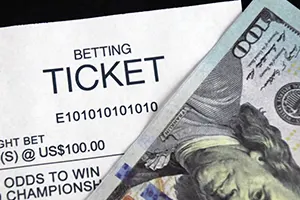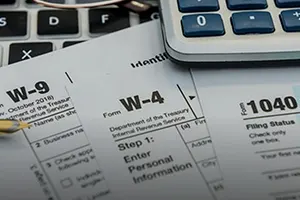 North Carolina has welcomed a new legal sports betting era on March 11, 2024. Along with the expanded opportunities for recreation and some additional winnings, however, gamblers from the state might need to prepare to face an unexpected tax burden. As it turns out, many people believe they can net out their gambling winnings and losses much like capital gains. According to state law, gambling income will be subject to taxes even if bettors reported net losses.
North Carolina has welcomed a new legal sports betting era on March 11, 2024. Along with the expanded opportunities for recreation and some additional winnings, however, gamblers from the state might need to prepare to face an unexpected tax burden. As it turns out, many people believe they can net out their gambling winnings and losses much like capital gains. According to state law, gambling income will be subject to taxes even if bettors reported net losses.
As reported by WRAL News, North Carolinians have spent hundreds of millions of dollars on sports betting since it was authorized, including $69 million in losses in March 2024.
While some bettors think they should only worry about taxes until they win big, this may not be entirely true. Under state law, bettors owe taxes on anything they win, irrespective of how much they lose.
At the federal level, bettors can net out some losses but only up to the amount of winnings, provided they itemize the deductions, which most people are unaware of. However, they can not deduct losses at the state level.
North Carolinians, Their Plans to Bet on Sports, and the Implications of Reporting Gambling Losses
 A recent poll conducted by SurveyUSA, asked 850 adults from the state of North Carolina various questions, including their plans to bet on sports after the legalization of the industry on March 11, 2024. The research, which was conducted online between March 6 and March 9, 2024, indicated that even though sports betting was legalized, the majority of respondents answered they had no plans to bet. According to the poll, just 7% of all respondents would bet frequently, and 22% reported they planned to bet occasionally. Some 18% responded they would place wagers rarely, while 53% did not plan to bet at all.
A recent poll conducted by SurveyUSA, asked 850 adults from the state of North Carolina various questions, including their plans to bet on sports after the legalization of the industry on March 11, 2024. The research, which was conducted online between March 6 and March 9, 2024, indicated that even though sports betting was legalized, the majority of respondents answered they had no plans to bet. According to the poll, just 7% of all respondents would bet frequently, and 22% reported they planned to bet occasionally. Some 18% responded they would place wagers rarely, while 53% did not plan to bet at all.
As explained by Nathan Goldman and Christina Lewellin, associate professors of accounting at the Poole College of Management, gambling winnings are subject to taxes and once bettors exceed the threshold of $600, they would receive a W-2G tax form in their mail. If winnings are below this amount, bettors will not receive the form but they still owe federal and state tax on their winnings. This means that they are required to self-report their winnings incurred from sports betting.
“Whether or not you do it is up to you. And I suspect a lot of taxpayers will probably err on the side of not reporting it. But that’s not what the law says”, the economist explained. Goldman also shared he was hoping that legislators might consider amending the state laws. Some states, including Michigan, Massachusetts, and West Virginia have changed their gambling tax laws to allow for itemization of losses. Others, however, such as North Carolina, Connecticut, and Illinois continue the above-mentioned practice.